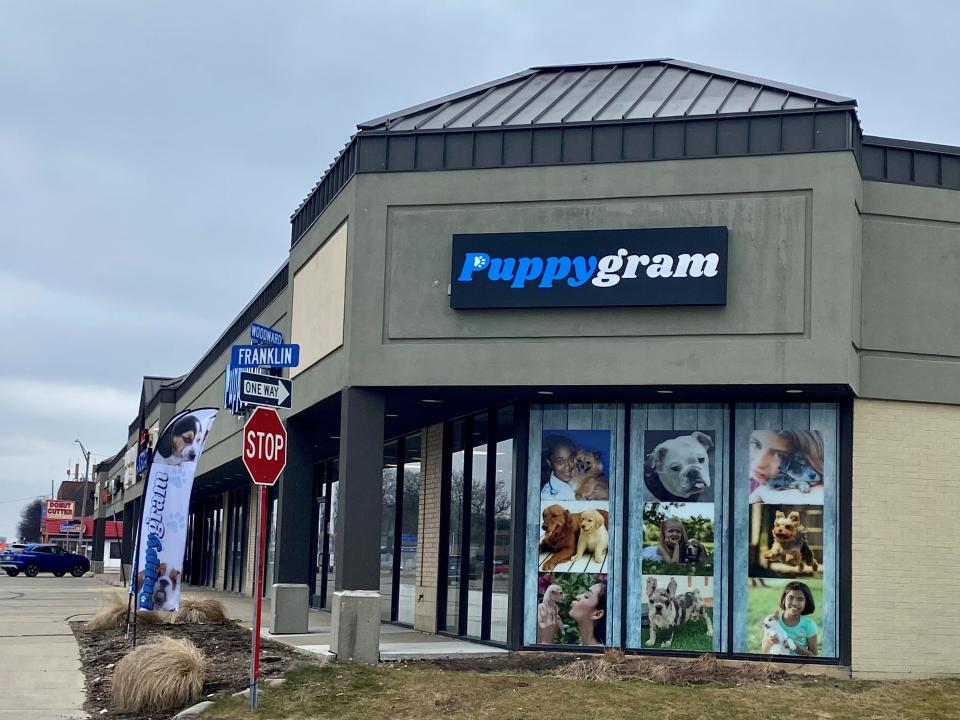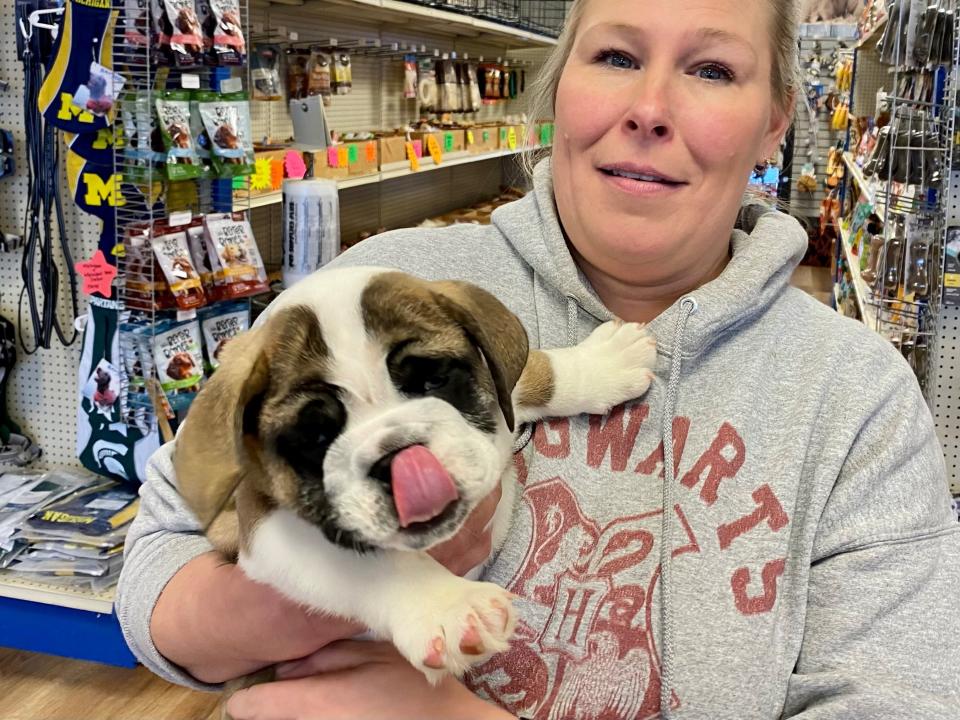Proposed ordinance to ban pet shop cat, dog sales could impact Berkley's Puppygram
Puppygram, a store selling cute puppies in Berkley, is facing what one of its owners has said are ugly, unfounded accusations of animal mistreatment and an uncertain future as its city council consider an ordinance that, once passed, would ban pet shops from selling cats or dogs.
The proposal is part of a broader trend in recent years that Michigan communities and a handful of states, from California to New York, have enacted to try to shut down commercial breeding businesses, often derogatorily referred to by animal rights advocates as "puppy mills."

It also is a clash between animal rights advocates, who say that pets are more than commodities to be bought and sold, and free enterprise retailers, who view the local and state bans as a threat to their businesses and ability to earn a living.
"The purpose is to prohibit retail pet stores in the city from selling dogs or cats," Torri Mathes, Berkley's communication director, told the Free Press this week, adding that at the moment no date has been set for a final city council vote. "Right now, Puppygram is able to operate, but I'm sure there will be some further discussions on council's part as well as Puppygram's part as we continue to move through this."
Mathes said that the proposed ordinance was a reaction to a public outcry and a recent investigation cleared Puppygram, which had briefly been forced to halt pet sales, of allegations of animal mistreatment and neglect.
As proposed, the ordinance would give Puppygram a few additional months — until Oct. 20 — to try to recoup its investment, which owners say is about $250,000, and wind down its operations.
Some in Berkley still want Puppygram shut down. At least 345 people have already signed an online petition on Change.org to ban it. Others, however, fear Pupppygram will end up filing a costly lawsuit against the city, or worse, the city council's decision would give Berkley a reputation that it is unfriendly — or unfair — to businesses.
More:Berkley’s Puppygram pet shop told to halt dog sales as officials investigate abuse claims
More:Warren police commissioner defends officers with videos, calls actions to save baby heroic
The council has tabled discussion on the ordinance for now and must consider whether to approve the section on existing pet shops as is, delete it altogether, or amend it to exempt Puppygram and allow it to operate while barring future shops from opening, what is commonly referred to as being grandfathered in.
"We never want to want to just shut down a business, because that's just not a good business partnership," Mathes said, adding that she "can't comfortably say" what all the options are, but the city is seeking to find "a better resolution."
Owner defends pet shops
Miles Handy, Puppygram's CEO, called the allegations against the new store at 28297 Woodward "bogus," and went so far as to say they were "a form of terrorism," because "they are basically terrorizing a legal business that's able to operate under the current ordinances."

The red tape and bad publicity, he said, have hurt the business.
The shop opened in a small shopping center where an FYE entertainment store had been.
City officials began investigating tips of animal mistreatment and halted animal sales over what Handy said were some "issues over a business license." But earlier this month, the shop was allowed to resume operations and, Mathes said the city concluded that the shop's animals were "OK and well cared for."
But in Kokomo, Indiana, where Handy owned a different pet shop, Pets Choice, the Kokomo Humane Society told WRTV-TV in Indianapolis that it had received many calls about "poor conditions at the store," and what appeared to be dehydrated dogs.
In addition, the Kokomo Tribune reported the Indiana shop has faced "allegations of selling customers sick and malnourished puppies" and was issued an eviction notice and was ordered to vacate its storefront after failing to pay more than $18,500 in rent for several months.
Handy told the Free Press that the Berkley shop and city are in communication and in agreement that "we're against puppy mills and want puppies that are humanely sourced from quality breeders." He added that "we're trying to work with" city officials to address concerns about the puppies and "we hope we'll have a good resolution."
"We didn't hide what we did," he said, adding that the shop appreciates the passion of animal rights advocates. He said that the shop's business model is to work with kennels that "treat their animals with the utmost respect," and shops like his give people a choice about where they get their dogs. "We are proud of what we do."
Increased scrutiny, store bans
Still, whether or not Berkley allows Puppygram to continue to operate, pet shops nationwide are meeting increased scrutiny and pressure from animal lovers to stop selling adorable animals in window displays for thousands of dollars.
The American Society for the Prevention of Cruelty to Animals, which is based in New York, is increasingly championing such laws, calling them "critical to reducing the demand for cruelly sourced puppies."
More than 300 cities and counties, the nonprofit group said, have passed retail pet store bans.
"All dogs deserve the good life, with plenty of food, shelter, socialization, and veterinary care," the ASPCA says on its website.
In 2019, Royal Oak banned pet stores from selling dogs, cats, rabbits, or ferrets — animals from puppy mills or mass breeders, joining four other Michigan cities — Eastpointe, Memphis, New Baltimore and Fraser — that also prohibited pet store puppy sales.
In December, New York state passed legislation that would eventually prohibit selling dogs, cats and rabbits from breeding facilities. The pet store industry aggressively opposed the bill, saying that it would put them out of business.
New York joined other states, including California, Maryland and Illinois, with similar bans.
Paul Brake — Royal Oak's city manager and a former dog breeder who, with his wife, adopted a spotted rescue cat they named Rosebud — said that the ban has "worked well" because it tends to benefit the pets and the people who buy them.
"The ordinance, in my view, is effective," Brake added, noting that the problem with buying pets from many shops is that "you can get a dog that looks cute, but has problems."
Contact Frank Witsil: 313-222-5022 or fwitsil@freepress.com.
This article originally appeared on Detroit Free Press: Berkley debates pet shop ban that would affect Puppygram store

